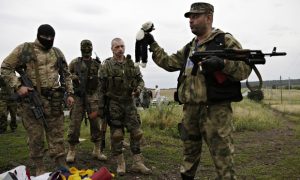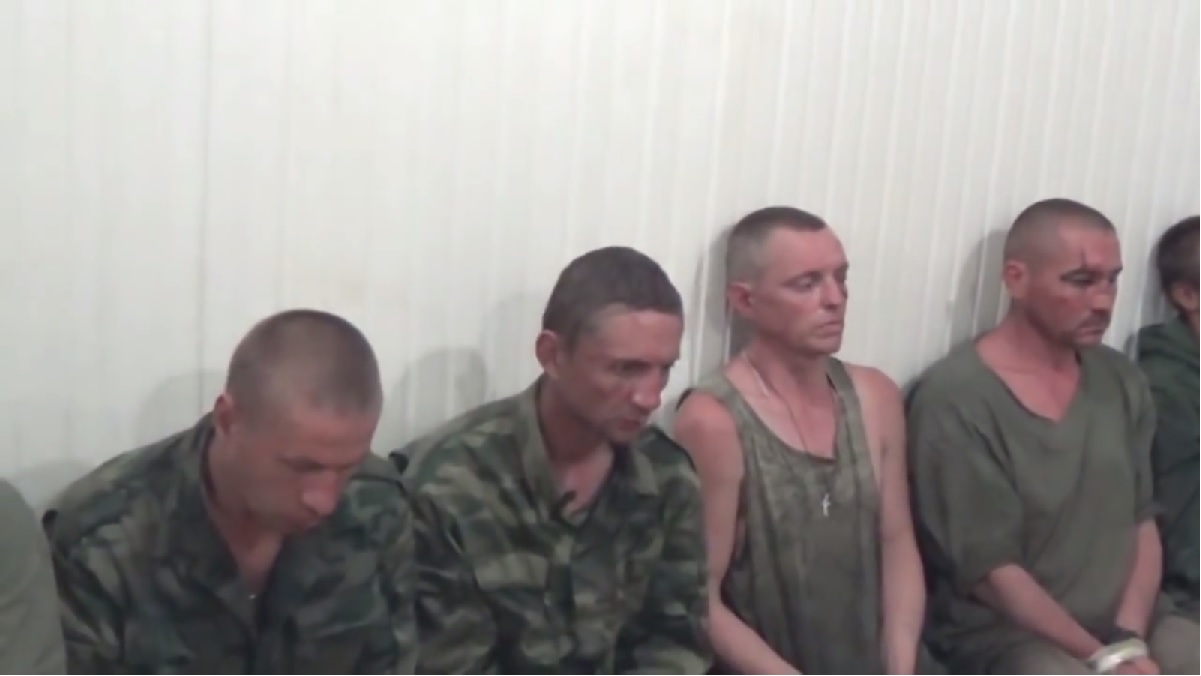Desertions by pro-Moscow mercenaries in the Donbas are increasing, according to Dmytro Tymchuk, head of Ukraine’s Information Resistance Group, a development that is characteristic of the deterioration in discipline among such irregular forces that aren't involved in active combat and one that could force Moscow to introduce more regular troops.

On his Facebook
page, Tymchuk reports that “a growth in the number of deserters from units of militants operating in the western and northwestern directions” of the "DNR" has been observed and that Russian commanders there and in the "LNR" have been ordered to step up efforts to capture and return them.
The Ukrainian activist also reports that “local ‘law enforcement personnel of the LNR’ are carrying out a major operation to ‘find and confiscate from the population illegal firearms and military supplies,’ and using this pretext to make numerous arrests of representatives of the local population.” That has sparked rumors that the "LNR" bosses fear a revolt against them.

This report should be treated with caution: Not only do Ukrainian activists have a reason to play up such stories, but participation in pro-Moscow militias in the Donbas is far less clear cut than the word “desertion” might suggest. Most of these units are not so formally organized that there isn't always at least on the margins a coming and going of those fighting for them.
But at the same time, a rise in the number of those leaving such militias is quite likely both because of the absence of new military operations that might help maintain loyalty and because many of the formerly loyal members of these groups fear that they are about to be sold out by Moscow in some way.

New efforts to track down, arrest and return to their units such people will do little to reduce the number of such “departures.” Instead, if they become a real trend, Moscow will be forced to choose to step up the use of these militias in order to maintain their cohesion or introduce more Russian regular forces to hold the situation together.
Consequently, as welcome as this indication of the decay of pro-Moscow militias may be, it contains two serious dangers, one immediate and one long term. The immediate one is that it will force Moscow to act in a more forceful manner; the longer term one is that these “deserters” will rejoin the local population but remain a threat to the restoration of Ukrainian control.
The latter may prove to be even more serious. The history of the atamanshchina in post-1917 Russia is full of cases where those supporting these brigands
melted back into the population but continued to cause problems for the Soviet powers that be for more than a decade.
At the very least, that is a risk, and it is one that Ukraine and its supporters should take seriously and plan to counter lest these “deserters” become another form of Vladimir Putin’s “hybrid” war against Ukraine and the Kremlin leader’s plans to permanently destabilize that country.
Related:
- Atamanshchina spreading among Russia's hybrid military force in Ukraine's Donbas
- Russian military analyst: The forces in Donbas are Russian Army
- Ukrainian military intelligence identifies top Putin’s generals conducting war in Ukraine
- One fifth of Russia’s hybrid “DNR/LNR” force in Ukraine are regular Russian Army troops — Ukrainian MoD (Infographics)
- Donbas militias are “UNITS OF THE RUSSIAN ARMY,” says Babchenko
- New “old” Russian imperialism and hybrid wars — an historical overview
- Kremlin hybrid war tactics in Georgia, 2008 and Ukraine, 2014-2015 (Infographic)
- Russian hybrid warfare: what are effects-based network operations and how to counteract them
- Hybrid war “a Russian strategy since Mongol times,” blogger says

